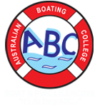Every skipper needs to ask themselves this question – Is my boat at some stage going to break down?
The answer to that question is YES, under the law of averages your boat will definitely break down. The nature of the activity is that a mechanical device will at some stage fail. Therefore, not knowing when the breakdown will occur, all trip planning needs to be done on the basis that it could be THIS TRIP that the breakdown happens. If you have consciously thought prior to the trip about how to manage the breakdown and planned and prepared for it, then when it happens you’ll be much more able to manage the situation.
Important – Your preparation will vary, depending on trip location, and things such as weather and tides.
When a vessel breaks down, typically all passengers look at the Skipper and think “you got us into this mess, so you get us out of it”. At this stage, you’ll need to manage the people on board, and may have to set them specific tasks.
Your first concern is whether the vessel is in immediate danger. Are you drifting onto rocks, into the path of an oncoming large vessel, or into a surf break. Your next action will be determined based on the presence of that immediate danger, and you will have to take the appropriate steps to alleviate that danger (anchor up/paddle for your life/signal to an oncoming vessel etc). Once any immediate dangers have been dealt with, you would normally attempt to restart the vessel, by troubleshooting and attempting to fix whatever caused the breakdown. If the problem is simple, you may be able to identify and remedy it and happily continue on your way. If you are unable to remedy the fault, you will need to manage a rescue. Most of your rescue management options come back to your pre-departure vessel and trip preparation
With an effective marine radio or mobile phone on board, you will be able to communicate to a rescue service or gain assistance via voice communication. With another propulsion source, such as oars and row-locks, you may be able to move your vessel to a location from where the vessel may be retrieved. With a tow rope on board, you are ready to be towed by a passing vessel that offers assistance. With visual distress aids such as waving arms, flares and V-sheets, you may be able to visually communicate with other vessels in the vicinity. The choice of which distress signal to use (voice/visual) will be made by the skipper.

